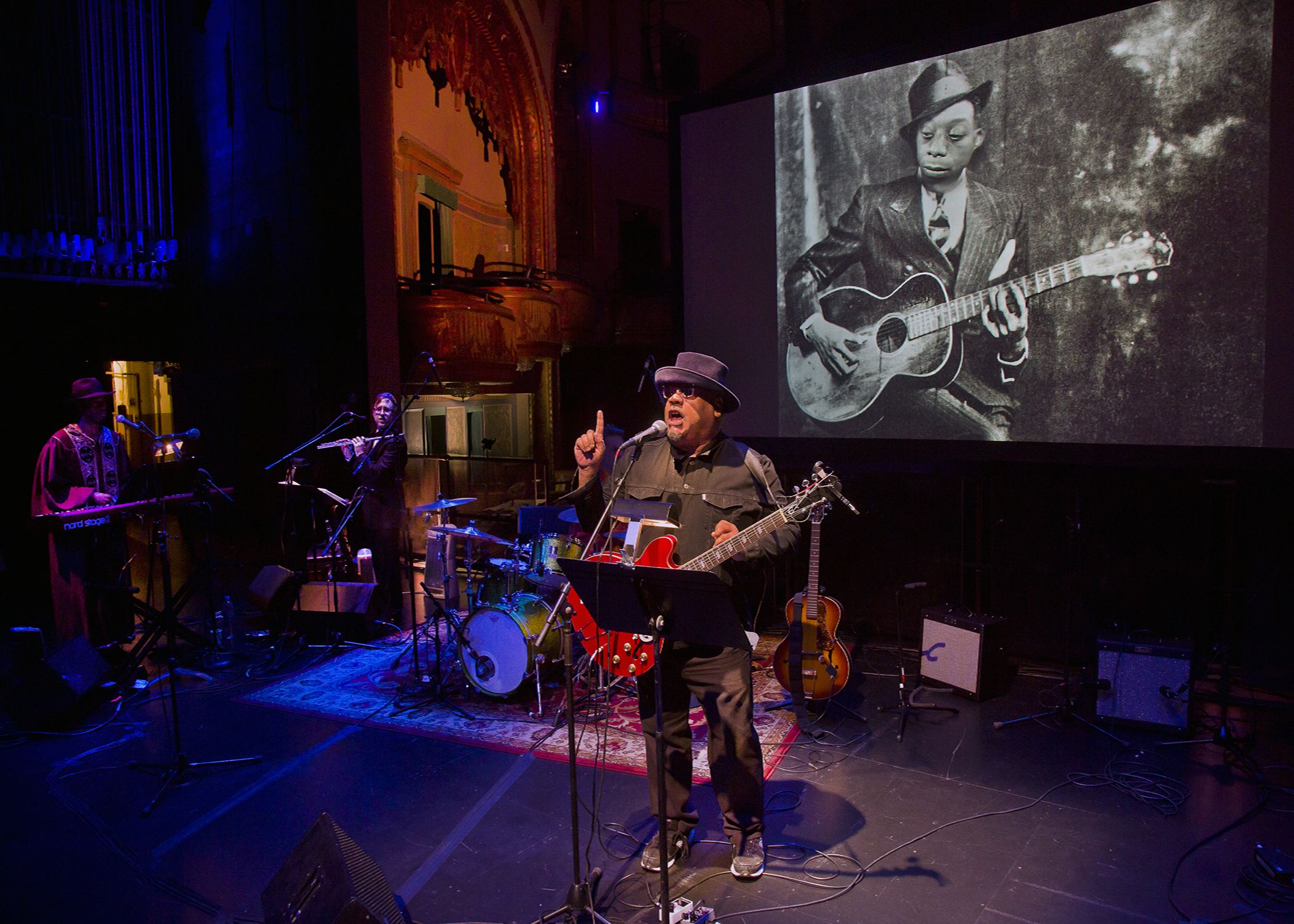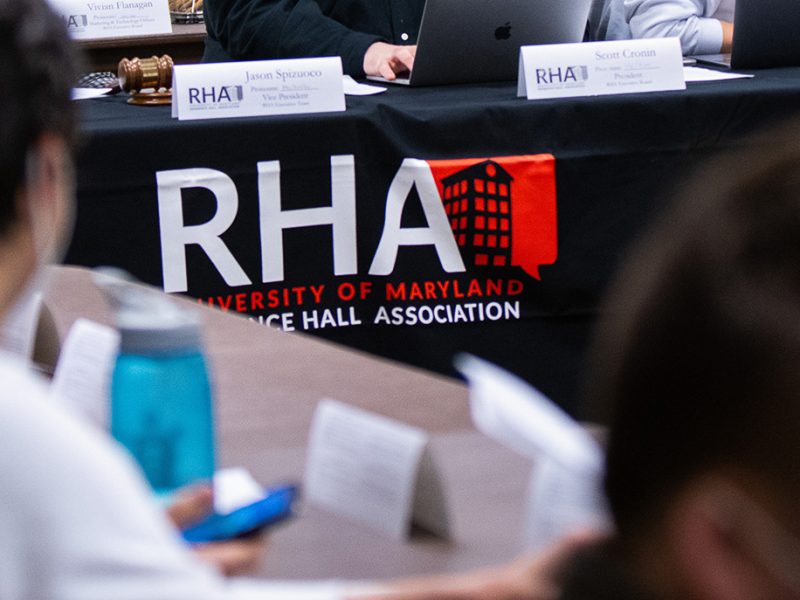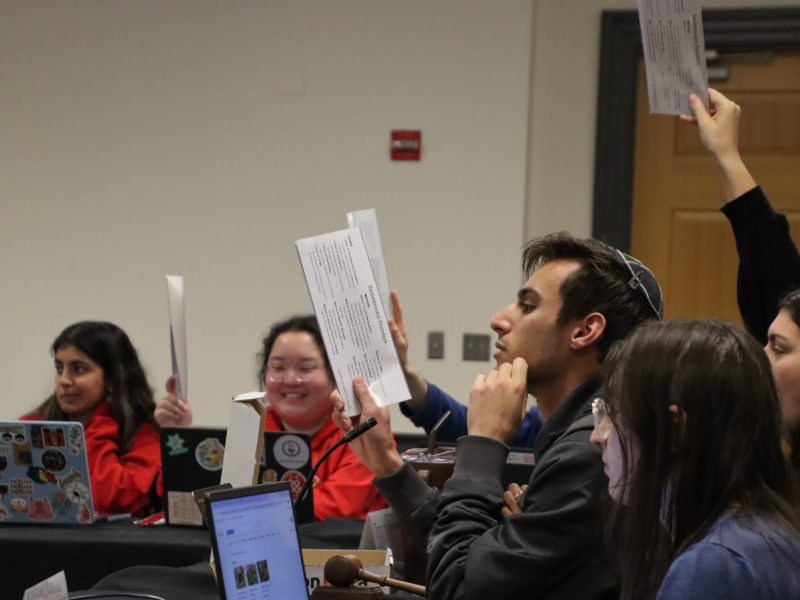By Aaron Feldstein
For The Diamondback
A group of University of Maryland students sat silently as playwright and civil rights activist Mark “Stew” Stewart taught them the difference between a song that is socially engaged and one that is not.
“The socially engaged song needs to engage us on an emotional level,” said Stewart, who fronts his band, Stew & The Negro Problem. The band performs politically charged and socially conscious songs all over the country.
“It needs to present an alternative world where political change sounds like fun,” Stewart said.
Stewart, 57, is a Tony award-winning playwright and faculty member at Sarah Lawrence College and The New School, where he teaches a class about socially engaged song.
On Thursday evening, Stewart led a conversation at MilkBoy ArtHouse as part of a series called “Do-Good Dialogue: What is socially engaged song?” to discuss what makes certain songs political and socially engaged.
The crowd remained quiet as Stewart continued.
“We’re going to talk and have an actual conversation,” he said. “We can talk honestly.”
Stewart explained the difference between love songs, gospel songs and socially engaged songs.
“Gospel and love songs are selling you something,” he said, “If you’re going to sell someone anything, you’ve got to make promises.”
A socially engaged song is “like a love song to a better life,” he added.
Attendees quickly began to respond to Stewart’s prompts. A few even went up on stage to share songs that have influenced them, such as “This is America” by Childish Gambino.
“How many people are unsatisfied with the political state of the United States?” he asked at one point.
Almost every hand in the room went into the air. Stewart encouraged attendees to reach out to people close to them and start a dialogue about race and social change.
Gavin Jagde, a freshman mechanical engineering major, found Stewart’s conversation interesting.
“He gave a good performance,” Jagde said.
The following evening, Stewart and his band performed at the Clarice Smith Performing Arts Center. They performed a song called “Western” about Trayvon Martin — an unarmed black teenager who was fatally shot by George Zimmerman in 2012. The incident sparked national outrage and shined a light on issues of gun violence and racial profiling.
One of Stewart’s lyrics, “Are you following him… yes, okay… we don’t need you to do that” is a line to a 911 call made by Zimmerman the night Martin was shot.
Ashish Manda, a freshman computer science major, said he was impressed by “Western,” and how Stewart used the 911 call as inspiration for a song about an important social issue.
Students were the majority of the lecture’s attendees on Thursday, while the concert Friday was a blend of both students and adults.
Barbara Little, an anthropology professor at this university, didn’t know what to expect when she attended the concert but described it as a “really unusual, creative cultural critique.”
Stewart is a “brilliant commentator,” Little said.
“I think Stew has a really important way of telling a story that’s engaging, that has a wry nuance to it,” said Bobby Asher,” senior associate director of The Clarice. “That’s super appealing.”



